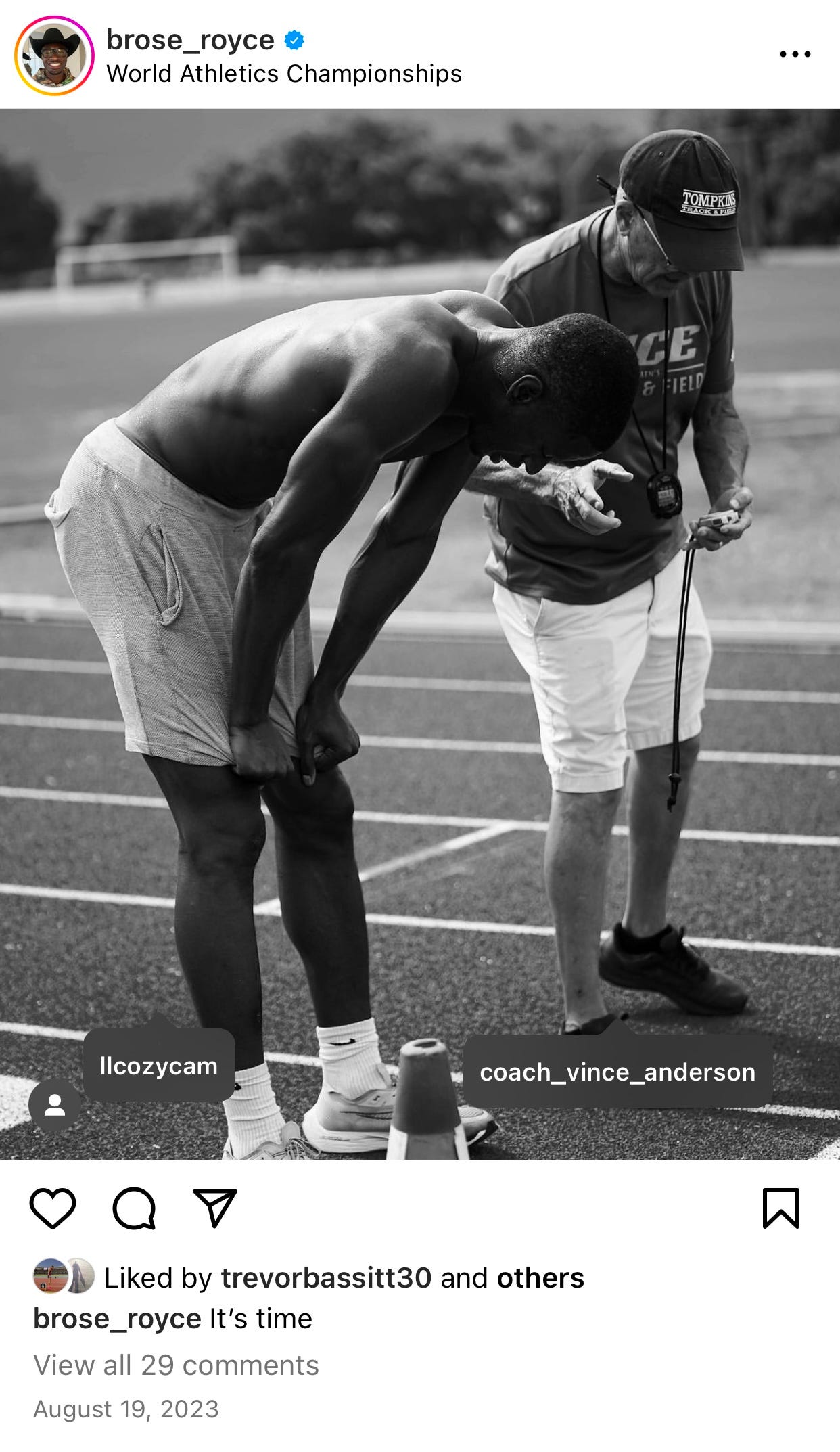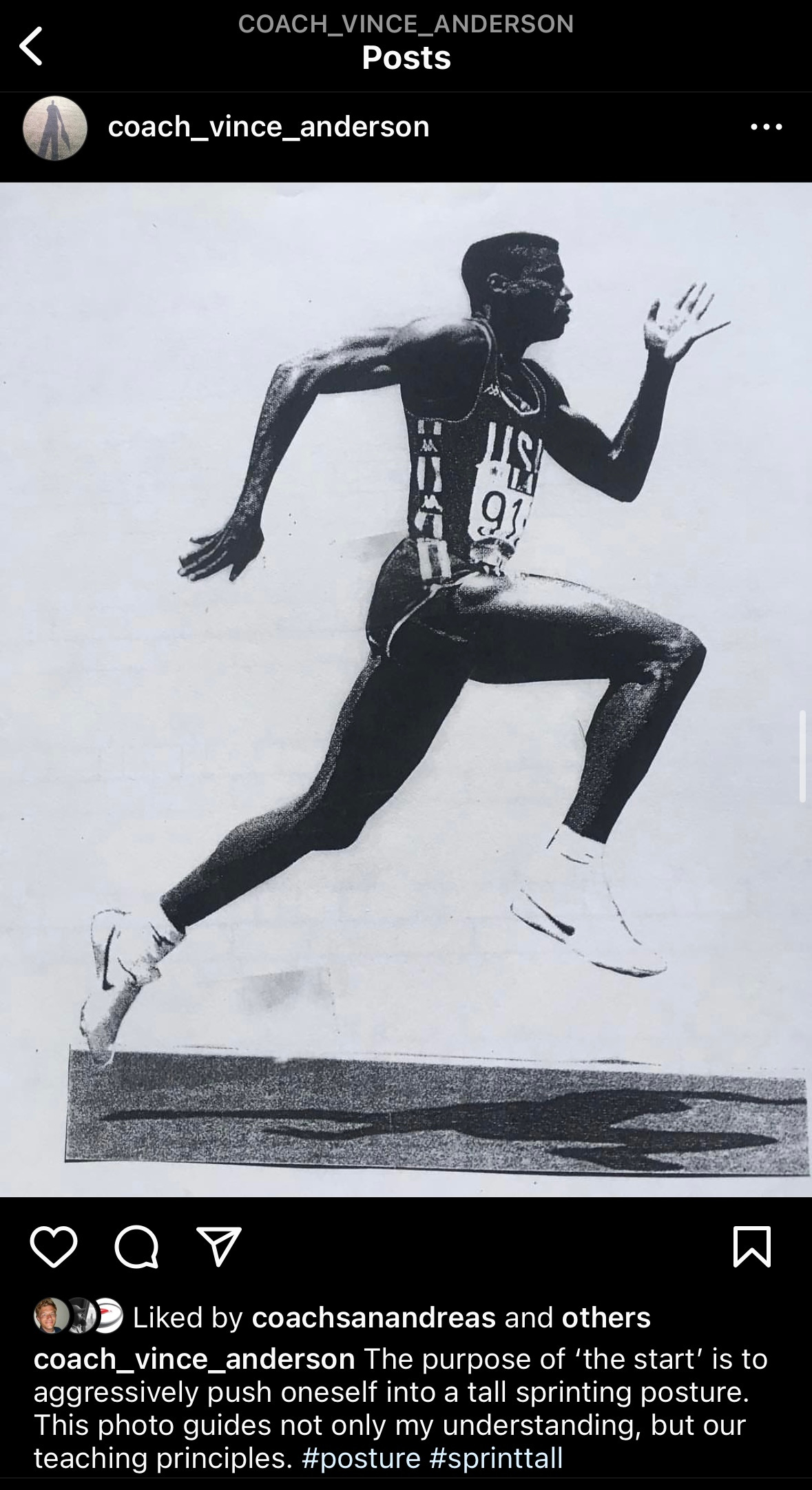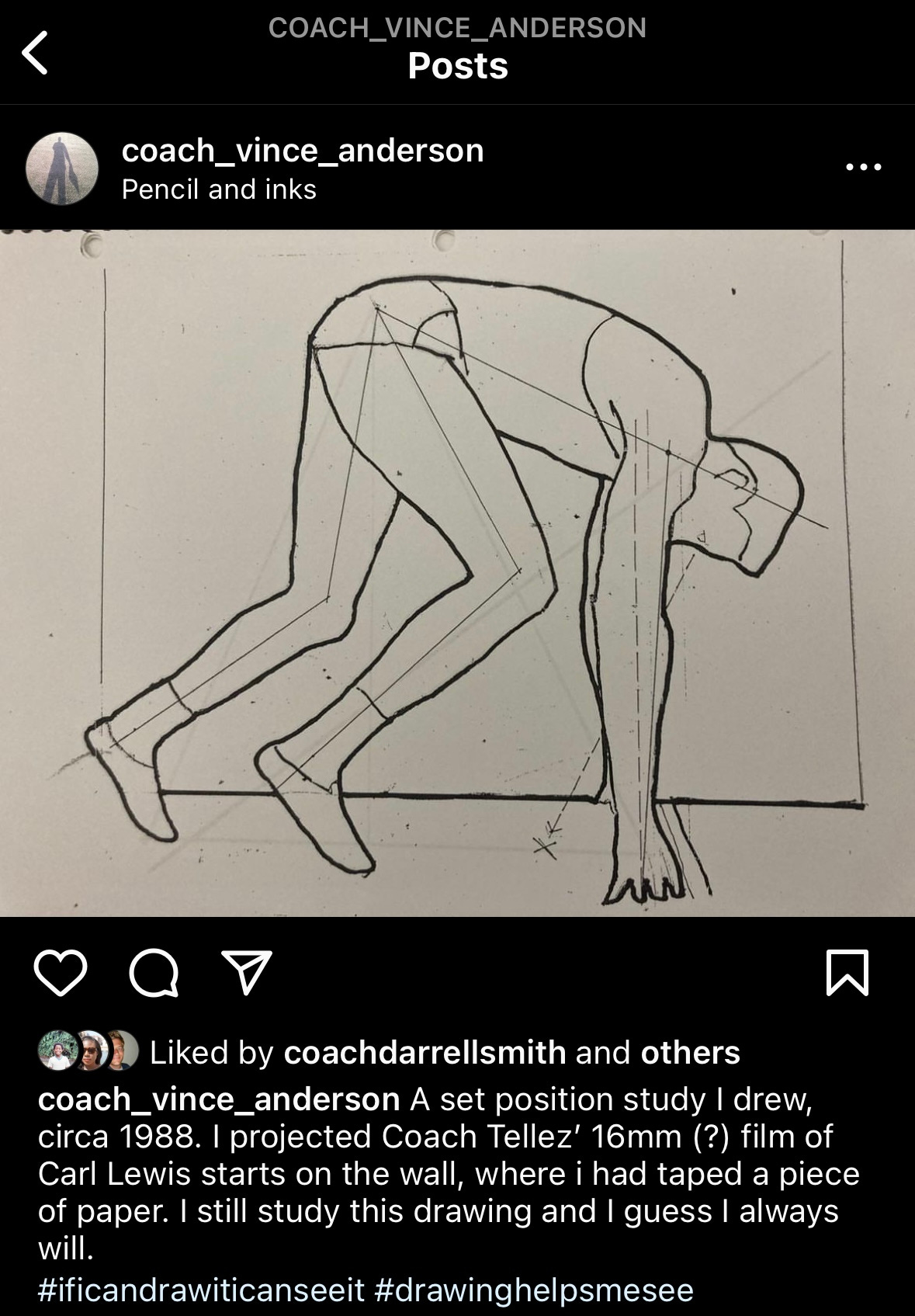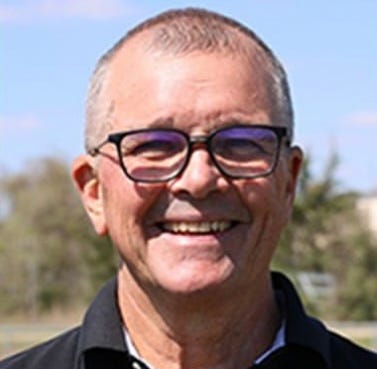⚡️Coach Vince Anderson⚡️Answers Our Questions
He's a legend who's coached 12 Olympians!! Ready to hear from one of the best? Plus, Coach Clark announces the Warm-up Workshop!
Coach Vince Anderson is here! We asked him a few questions, and he kindly answered. He talks about his coaching philosophy, the worst piece of coaching advice, his start at Tennessee, and—well, I’m not going to spoil it. You’ll have to read for yourself!😁
What advice would you give prospective recruits looking to run at the D1 level and/or professional?
Your college/professional experience is up to YOU. Coaches should be helpful, but your performance academically and athletically is your responsibility rather than someone else's. lt seems to go, in order, like this - adapt, learn, grow. The order is not accidental. One cannot grow without first adapting.

Can you describe Coach Vince Anderson’s pillars of coaching? Have they changed during your 39 year career?
Certainly, my emphasis has changed for the better over the years.
Dan Pfaff nailed it: "Acceleration development is the foundation of ALL running activity" (the caps are mine). Notice he didn't say "some" running aspects. He said "all". So, acceleration development is the foundational skill, EVEN for endurance sprint training. Sadly though, acceleration development is often skipped completely and never addressed. It is sad to believe coaches would skip acceleration development, when it underpins every sprint facet. No developing athlete knows how to accelerate. They must be taught how to do so and that is where sprint coaches come in.
What’s the worst piece of coaching advice you’ve been given or heard?
By far, the worst coaching advice ever is "Don't peak to soon". Following that principle ensures there will be no development athletically.
What was the moment you realized you wanted to be a track & field coach?
I dabbled with the idea when I was 19 and had to first declare a major for college. I went another direction for several years and came back to actual coaching, by necessity of changing careers, at age 31.
What’s the first piece of advice you would give someone out of college or changing professional careers who wants to be an NCAA coach?
Think of apprenticeships. Become a volunteer assistant for the very best coach who will agree to take you on. The great Terry Crawford told me: "Devote yourself to becoming an elite coach in an event area that is not your own." Understand that many elite offensive coaches in the NFL started as defensive coaches. This is no accident. One cannot possibly unlock professional defenses without understanding them from the inside. This analogy cannot be escaped in any discussion of the track coaching path.
How much of an athlete’s continued success is mental vs. physical work?
It varies with the individual, but 33%, or LESS (mental), is a healthy number. If half of one's energy is used for mental deployments, that creates poor odds for success. The steeper the hill, the harder the ascent.
You mention that you became the coach you are today from mentors patiently teaching you. Who are your top mentors, and what did they teach you on or off the track?
I have had so many. I still have so many. Gary Winckler is especially generous. Brian Mondschein taught me volumes. As for the top advice, I'll start with Pfaff's directive above, regarding acceleration development. Coach Tellez taught us that coaching is a VISUAL discipline primarily. A coach must be able to SEE biomechanical movement at competition speeds. Of course, that journey begins first by being able to see movement in still photos and slow-motion video, while contrasting those views with full speed videos of the masters. Choose your models carefully. There are a few reliable models and lots of shaky ones. This is just one of the many areas where mentors can guide aspiring coaches. Good coaches will tell you which athletes are proper biomechanical models.
Your first years and time spent at Tennessee were pivotal for you as a person & coach. How did that time, those athletes, those mentors shape you?
It was the first place where I was given responsibility for scripting training and administering it, which requires teaching athletes. The performance of the group was MY responsibility, and I was held accountable for it. Coaches must adapt (that word again!) from the many mistakes they inevitably make, whether as beginners or as experienced practitioners. Those mistakes range from writing training, orchestrating performance and managing people (which of course includes managing oneself).
When you shared “wickets” with the coaching world, did you ever think that it would become, for lack of a better word, “viral”? Now, there are thousands of iterations of your wicket drills. What are your basic fundamentals of the wicket drill?
Well, let's just say most of the iterations have nothing to do with the proper deployment of the drill, which was constructed very consciously as a maximum velocity sprint exercise. Sprinting is not about stepping over anything, which is why I laid my little hurdles down, flat on the ground. Sprinting is not about stepping OVER anything. Sprinting is about "stepping down from above" - Gary Winckler
You found that a start position is “an inherently stable, organized system” (when done right). Can you show us an example of what you mean?
If a coach properly teaches limb alignment for the on-your-mark position and the athlete then rises until their front knee locks at 95 degrees flexion, biomechanical beauty results. For it is there, in that position, that an isosceles triangle is formed by the points of 1) the hands, 2) the ball of the back foot and 3) the hip joint. In that alignment, the axis of the front shin passes through the shoulder joint and bisects the triangle!
What are your most memorable moments of track & field? What moments do you look back on and think, “That was a perfect race, perfect execution, unforgettable”?
The execution of our 42.36 4x100 CR at NCAA's in Fayetteville, 2009, was lovely. That run was 2.94 seconds faster than our collective pr's, which is very, very efficient. The next year at NCAA's, we ran just as well technically, in hideous conditions (10am gun in cold, damp Eugene). There were a handful of team efforts, when lots of athletes joined in, to create a wave of synthesis. I suppose there is nothing quite as wonderful as that, for any team.
How have you stayed inspired and motivated in this sport for as long as you have?
I remind myself that I chose this profession. I asked for it, so I cannot complain about the very thing I asked for. Make it work and remember: it has nothing to do with me -- it is entirely about the athletes and their worldly development (see Greg Popovich).
Coach Vince Anderson is in his 39th year of coaching sprinters. Currently, he is an independent contractor, training 16 athletes from various nations in Houston as they try to earn a berth for the 2024 Olympic Games. In all, Anderson coached 34 years at the NCAA Division 1 level. He coached 15 years at Texas A&M, 16 years at the University of Tennessee and initially served 3 years as a volunteer coach at the University of Houston. He has trained NCAA Champions in every sprint, hurdle and relay event and also served as the sprint coach for long jump and decathlon champions. Anderson has assisted 11 NCAA Championship squads since 2001 – including 9 outdoor and 2 indoor titles. Each title is precious and has a story of its own.
Since 1995, Anderson has trained 12 Olympians and 18 athletes who competed at the World Athletics Championships, including Phyllis Francis, 2017 World Champion at 400 meters and Bryce Deadmon, 2023 USA Champion at 400 meters. Anderson’s training approach is heavily influenced by teacher/coaches, who developed educated athletes such as Kareem Jabbar, Alan Page and Nicole Leach. Anderson aspires to develop “worldly athletes” – educated men and women who curiously engage the world around them to maximum effect. Anderson has been married to his wife, Charla, for 41 years and they have one son, Kohl, who is a practicing attorney. You can find him on Instagram.
Sunday, March 3 at 1pm EST/ 10am PST
Zoom | 90 mins (last 30 is Q&A)
Replay Available
Free to paid subscribers
I get asked this question more times than I can count: “What are your warm-up drills?” For the first time ever, I’m breaking them down and giving them to you!
Warm-ups are fundamental for every level of athlete, from first-timers to high schoolers and pro athletes. I’ve used these warm-ups for all of my athletes and made a few tweaks here and there. You’re going to see Coach Clark’s Warm-Ups 2.0!
Not only will you see what warm-up drills I teach, but you’ll understand why and how to implement them into your practices. These warm-ups get athletes’ body temps up, muscles loose, and their minds focused.
You’ll leave this workshop with
4 new warm-ups to rotate in your practice plans & meet schedules that will keep your athletes explosive, quick, and prepared
Hurdle warm-ups
My philosophy on meet day warm-up
How long should the team warm-up really be
Why you should care about warm-up tech
How these 4 warm-ups defend athletes against injury
Dos and Donts of any warm-up
—PLUS
If you join live Coach Clark can answer your questions on the Q&A segment (and you can connect with other coaches/attendees!)
—AND
You’ll get a printable download of Coach Clark’s warm-ups so you can use them right away!
If you would prefer to buy the workshop separately and not join SIC Newsletter, you can purchase the individual Zoom link here:
🌟Become a paid subscriber and get access to workshops like this one AND all (past & future) posts, open calls for video analysis, and guidance from Coach Clark and guest coaches to help you be the best coach you can be🌟
Paid Subscribers: You will receive the Zoom link 48 hrs before the workshop at no extra cost! PLUS all the perks of being a paid subscriber like open calls for your videos/questions, all paywalled posts, access to SIC community, Coach Clark’s knowledge, & more!
The recording will be sent to paid attendees/subscribers within 3-4 days of the workshop.








